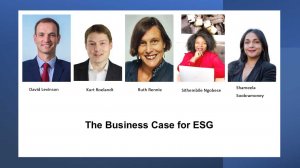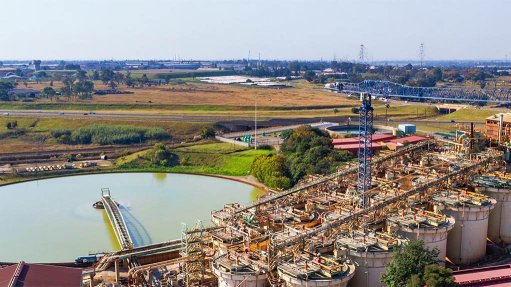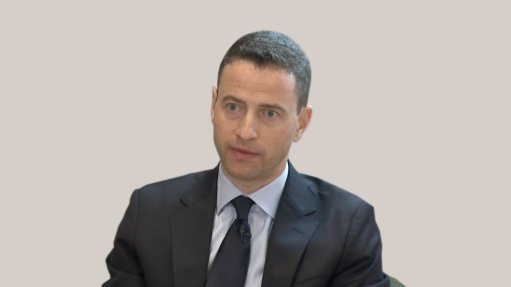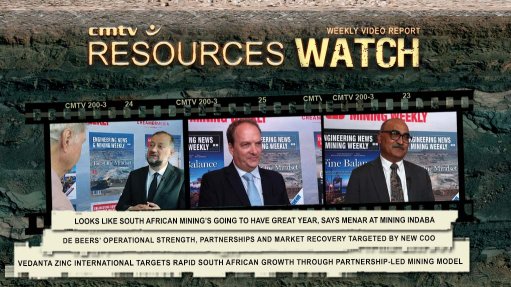The Business Case for ESG
Companies are still struggling to understand environmental, social and governance (ESG), owing to a lack of education on the subject and the need to introduce and uphold identical standards throughout a company to ensure everyone is on the same page, says consultancy Envision Advisory Services director Kurt Roelandt.
While there is a small core of larger companies that are ESG experts, he explained that there was still a lot of work to to be done by most companies, specifically small to medium-sized companies, where there was generally one person assigned to convey the message of ESG within the broader company structures.
Roelandt was part of the panel of experts addressing attendees of the Business Case for ESG webinar hosted by Creamer Media on April 25 on behalf of the ESG Africa Conference scheduled for October 4 to 5 this year.
Strategy advisory Strategic Mindsets founder Wendy Poulton facilitated the discussion which explored the many ways in which ESG factors can help companies achieve their business goals while also making a positive impact on society and the environment.
Investment bank Nedgroup Investments responsible investment head David Levinson said while ESG may seem embryonic, in some ways it was advancing relatively quickly.
“As investors, we look for companies that are acutely aware of global trends and what some of those frameworks [such as the United Nations Framework Convention on Climate Change] entail. We want to see companies invest in an appreciation for what this means in terms of risk and opportunity. So, there's a benefit to being on the forefront of ESG. There's also a cost of not using ESG.”
ESG looked very different depending on which economy, sector and, particularly, which part of a global value chain you were operating in, explained CEO-led organisation World Business Council for Sustainable Development Decision and Disclosure senior director Ruth Rennie.
“Therefore, the pressures and the possibilities for you to do things are going to be different. But the things you need to be doing are going to be largely along similar lines. What we've seen is that forward planning . . . the risks that are coming at us . . . will change. If your business doesn't shift to manage those changes, then your business will not be viable. Simultaneously, increasingly more young people are choosing employers based on what their values are.”
ESG had been at the centre of multinational consumer goods company Unilever’s global business strategy for the past two years, highlighted Unilever Southern Africa corporate affairs and sustainable business head Sithembile Ngobese.
“We believe that being a responsible, sustainable business makes a stronger, better business.”
From a social impact perspective, Unilever was considering how to allow sustainability to be at the forefront of rethinking the plastic system to keep plastic within a circular economy and out of the environment, added Ngobese.
“In South Africa, this can only happen if we improve the livelihoods of thousands of waste pickers to ensure that they are economically and socially included in the value chain.”
While ESG was often looked at from a risk management perspective, which was a “great first step”, sometimes what was missing was the context and the true aim – sustainable development, advised voluntary coalition of South African and multinational companies National Business Initiative CEO Shameela Soobramoney.
“This means to operate in the context of a set of finite ecological boundaries and, more importantly, to ensure that we maintain an adequate social foundation so that whatever we do in our businesses and our practices, and what we drive in policy and government, and the like, is enabling an outcome that embodies the finiteness in which we need to operate. And, within that context, how do we then run our businesses?”
The next ESG Africa Conference webinar takes place on May 17 and focuses on trade and ESG.
Article Enquiry
Email Article
Save Article
Feedback
To advertise email advertising@creamermedia.co.za or click here
Press Office
Announcements
What's On
Subscribe to improve your user experience...
Option 1 (equivalent of R125 a month):
Receive a weekly copy of Creamer Media's Engineering News & Mining Weekly magazine
(print copy for those in South Africa and e-magazine for those outside of South Africa)
Receive daily email newsletters
Access to full search results
Access archive of magazine back copies
Access to Projects in Progress
Access to ONE Research Report of your choice in PDF format
Option 2 (equivalent of R375 a month):
All benefits from Option 1
PLUS
Access to Creamer Media's Research Channel Africa for ALL Research Reports, in PDF format, on various industrial and mining sectors
including Electricity; Water; Energy Transition; Hydrogen; Roads, Rail and Ports; Coal; Gold; Platinum; Battery Metals; etc.
Already a subscriber?
Forgotten your password?
Receive weekly copy of Creamer Media's Engineering News & Mining Weekly magazine (print copy for those in South Africa and e-magazine for those outside of South Africa)
➕
Recieve daily email newsletters
➕
Access to full search results
➕
Access archive of magazine back copies
➕
Access to Projects in Progress
➕
Access to ONE Research Report of your choice in PDF format
RESEARCH CHANNEL AFRICA
R4500 (equivalent of R375 a month)
SUBSCRIBEAll benefits from Option 1
➕
Access to Creamer Media's Research Channel Africa for ALL Research Reports on various industrial and mining sectors, in PDF format, including on:
Electricity
➕
Water
➕
Energy Transition
➕
Hydrogen
➕
Roads, Rail and Ports
➕
Coal
➕
Gold
➕
Platinum
➕
Battery Metals
➕
etc.
Receive all benefits from Option 1 or Option 2 delivered to numerous people at your company
➕
Multiple User names and Passwords for simultaneous log-ins
➕
Intranet integration access to all in your organisation




















